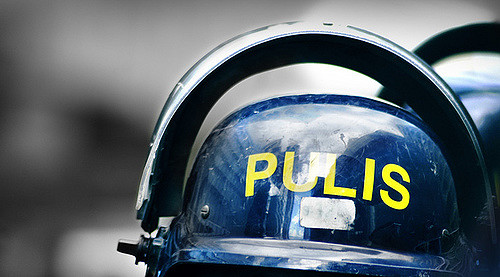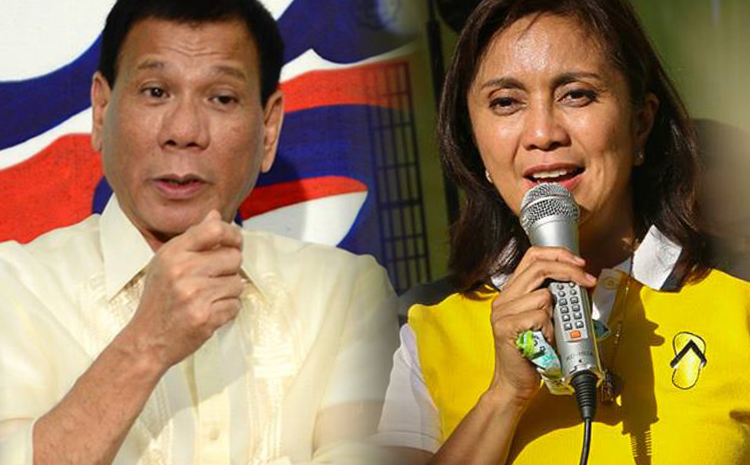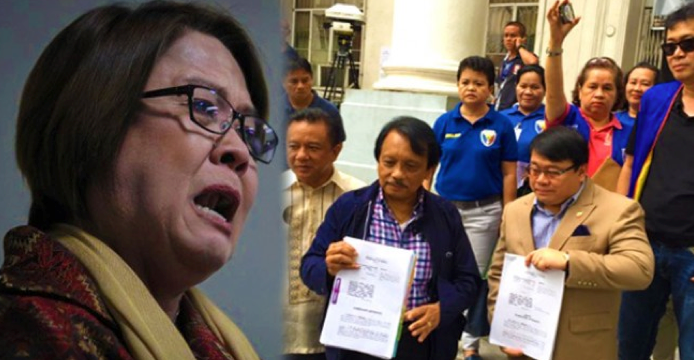Painting suspected criminals as people without rights is beyond dangerous
“Criminals have no humanity.” These were the exact words of President Rodrigo Duterte as he addressed the reports of human rights watchdogs in the country. He further mentioned that killing these criminals is not a crime. This was not the first time though that he has expressed the said sentiment.
Early in his administration last year, he also said that he doesn’t give sh*t about human rights. “You destroy my country. I’ll kill you. If you destroy our young children, I will kill you.” He recently attacked the Human Rights Watch (HRW), a New York-based organization, for their report on the extrajudicial killings in the Philippines.
Presidential spokesman Ernesto Abella doubled down on the statements of the President. He said that the administration’s war on drugs is not a war on humanity. Their goal is to protect humanity from modern-day evil. Those who go against these policies favor the interest of the criminals, he added.
A positive policy
The administration also made it clear that since the implementation of the war on drugs, over 1.1 million drug pushers have voluntarily surrendered to the authorities. Rehabilitation centers were constructed to treat drug addicts. The sheer magnitude of the narco state has also been exposed under the Duterte administration. This is why they felt strongly against the HRW reports treating Duterte as the bad guy.
According to Chief Presidential Legal Adviser, Salvador Panelo, the report was filled with lies. This is in reference to the title of the report, “Licensed to Kill”. He clarified that the allegations against the President were not new. They were the same allegations since he was mayor of Davao City. Since no charges were brought against him, it only showed that the President is innocent and is doing the right thing.
Reasons behind the extrajudicial killings
Panelo further questioned the reports of the HRW. He said that the families who were interviewed will not admit to the wrongdoings of their loved ones. He also maintained that those who were killed during the war on drugs were not killed because of the government’s actions. Instead, they were perpetrated by criminal groups who want to silence potential informants.
He once again raised the excuse made by policemen in the past saying that those who were killed during the raids have fought against the police and so they were targeted.
He also said that not only were drug addicts killed during the raids. Several policemen were also killed in line of duty when in fact they should not have suffered from casualties. He also denied claims that victims were planted with evidence to incriminate them. Finally, he clarified that the President must not be held criminally liable for the killings as he enjoys immunity from suit.
Due process of law
The country is still divided in regards to the policies of the administration to curb drugs. Considering that the President still enjoys high approval ratings, it only means that there is a large portion of the population who are in favor of his policies.
To begin with, everyone wants to put an end to the proliferation of drugs in the Philippines. We only differ on how it should be done. While drug raids are considered legal operations, killing those who didn’t even fight back is not.
The problem in this story is not necessarily on the idea that we have differences on how to stop the spread of drugs. It is more on Duterte’s mentality that suspected criminals don’t deserve due process of law and have to be killed.
In fact, it is enshrined in our Constitution that suspected criminals should be given due process, hence, the line “innocent until proven guilty.” With how Duterte views the situation, it seems like he has already given the verdict that all these suspected criminals are guilty and must be punished immediately.
This is not how our justice system works. No matter how strong your belief is that someone is a criminal, we still have to observe due process. This is in fact the reason why the Maguindanao Massacre is yet to be resolved. Despite the strong testimonies against the Ampatuans, no verdict has been released.
This is not to say that our justice system is perfect. In fact, the Maguindanao Massacre should have been resolved a long time ago had the justice system been better. The point is that those who were allegedly involved in the crime have to undergo due process until the court has reached a decision.
This could also be a slippery slope. If we don’t protect the rights of suspects for due process of law, it may happen to all of us. Next time, even suspects of non-drug related crimes might not get this right anymore.
Just propaganda
Duterte’s allies continue defending him by casting doubt on the substance of the reports. They believe that these reports were just black propaganda to discredit the efforts of the government. Abella maintained that the Duterte administration’s platform for genuine change will remain in place. The accusations that the police planted evidence were mostly unsubstantiated and were mere allegations. He believes that those accusations will ultimately be judged as hearsay in courts.
It is easy to say that these reports were just propaganda. The problem is that even the President has vague views regarding extrajudicial killings. At one point, he denied that the police were involved in extrajudicial killings. In other interviews, he said that killing those criminals was justified.
Given how he has expressed his views regarding criminals, it is safe to say that he is least concerned about the observance of due process. For him, regardless of due process, these criminals have to die.
Moving forward
The Counter-Intelligence Task Force and Internal Affairs Service have been given instructions for investigating potential abuses among the police while conducting the war on drugs. The PNP has also expressed their openness to be investigated for these allegations.
This should be a positive step moving forward. The Duterte administration deserves all the support it needs in fighting drugs in the country. It is already beyond question. As long as the due process of law is observed and criminals are not subject to immediate death, human rights organizations will not cry foul.
This post is supported by a writing grant from the Philippine Center for Investigative Journalism (PCIJ)



